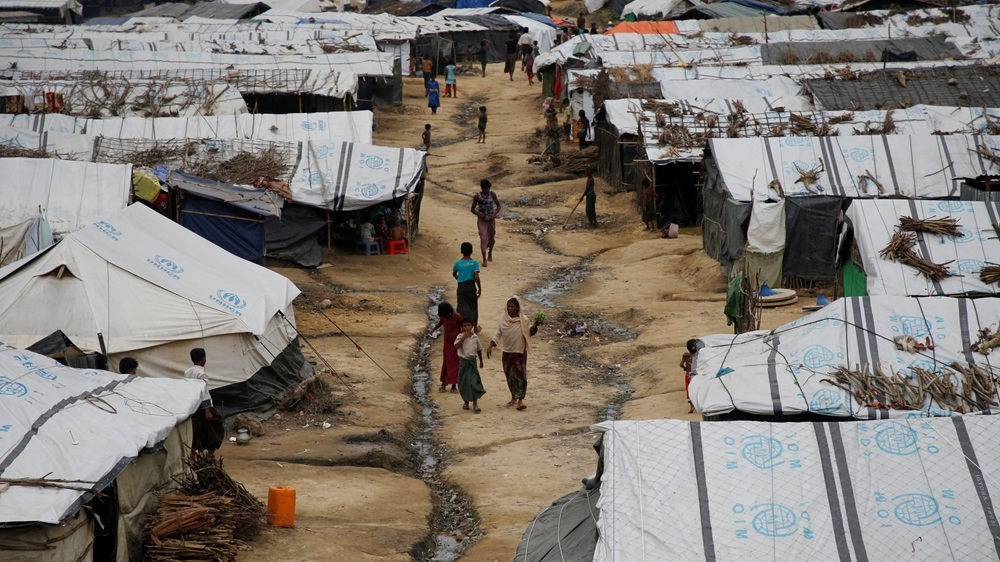
Politics
17:38, 15-Nov-2017
UNHCR: One in every three families vulnerable in Rohingya refugee camps
By Shweta Bajaj

A study of Rohingya refugees in Bangladesh who fled the recent violence in Myanmar finds one third of all families are living in a vulnerable state. The UN refugee agency UNHCR did the survey collecting data from more than half a million refugees.
The survey is crucial in making sure that the aid and relief work meets the needs of hundreds of thousands of Rohingyas who have fled Myanmar. As the exodus continues, the challenges will only rise.
We met Noorasha Begum who had come to fetch medicines for her four children. She left three of them in the makeshift camp she now lives in. She brings along her youngest, an infant.

20-year-old Rukhia waits to collect medicines for her 4 children at a camp. /Photo provided by Shweta Bajaj
20-year-old Rukhia waits to collect medicines for her 4 children at a camp. /Photo provided by Shweta Bajaj
Noorasha's husband was arrested by the military when she escaped Myanmar with her children. She hasn't heard from him since then. According to the UNHCR study, 14 percent are single mothers. They are uneducated, poor and burdened with emotional scars they have carried with them.
Her story is typical among the families here in Cox's Bazar's largest refugee camp. Many have lost their caretakers and breadwinners. Their needs are challenging yet needs to be met by world community.
The UN refugee agency, UNHCR went shelter-to-shelter counting these families. There are also a number of unaccompanied children who either lost their parents or cannot find them. Many of these young children are taking care of their even younger siblings.

Kuthupalong, Cox's Bazar, Bangladesh - largest refugee camp in the world with 350,000-400,000 people living in make shift houses. /Photo provided by Shweta Bajaj
Kuthupalong, Cox's Bazar, Bangladesh - largest refugee camp in the world with 350,000-400,000 people living in make shift houses. /Photo provided by Shweta Bajaj
Mohammed Abu Asakar, spokesperson for UNHCR says, "We need to remember that this is the fastest refugee situation in the world today and we have witnessed 10,000 people flee every single day in the last few months and in order to respond to everybody's needs that requires huge amounts of support."
The study only makes official what is clearly seen at these camps. Many elderly are also present and their health needs are immense. Among women and children malnutrition is common. Most have stayed without food for days and walked through forests.
Even as the Bangladesh government and humanitarian assistance agencies continue to work to meet needs, a public health crisis in threatening to make things worse.
The study is aimed at better matching humanitarian assistance to the actual needs of the refugees, but the varied conditions of more than 600,000 Rohingyas who reached Bangladesh in the last three months pose a monumental challenge for Bangladesh and the aid agencies assisting it.

SITEMAP
Copyright © 2018 CGTN. Beijing ICP prepared NO.16065310-3
Copyright © 2018 CGTN. Beijing ICP prepared NO.16065310-3